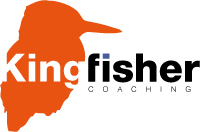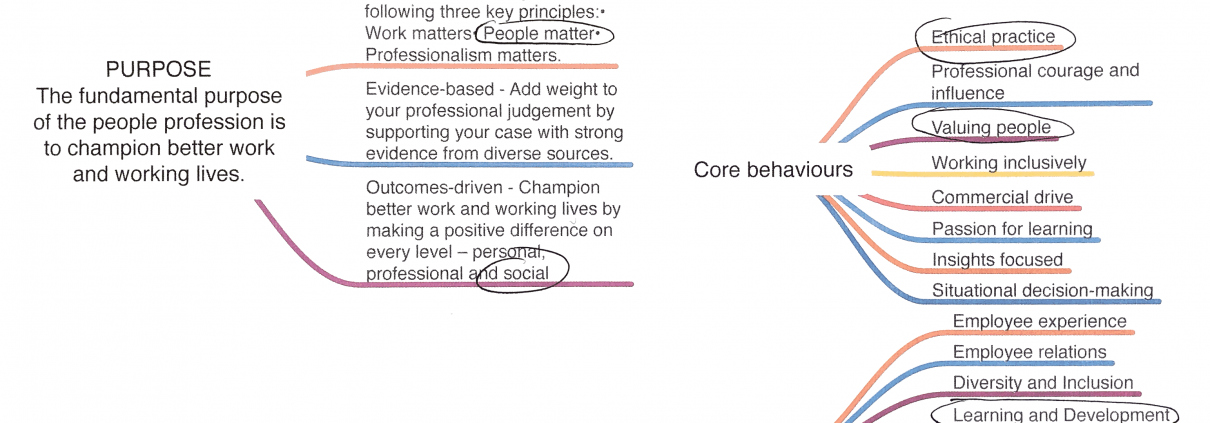How to make the most of #cipdace 2019
The CIPD Annual Conference and Exhibition starts in Manchester on Wednesday 6th November (one week today) and I’ve been planning how to make the most of my time there. I’ve re-read my previous reflections on conferences and here are my thoughts on how to make the most of #cipdace –
For attendees/delegates:
(1) Know what you want to get from the conference and take responsibility for getting it
I worry that we can sometimes fall into the trap of wanting our learning to be done for us, but we need to take responsibility for our own learning experiences. Be clear about what you want to get from the conference and do whatever you need to do to get that. Put a lot of effort into choosing which sessions to attend; not every session is right for everybody and it depends what you’re looking for. My own approach this year has been to use the new profession map from CIPD to guide my learning agenda for which sessions I want to attend:
(2) Make the most of what is on offer
I think learning from a conference is a little bit (but not exactly!) like 70:20:10 where the 10 is what you heard said on stage. You will learn loads from chatting to other attendees, asking questions of the speakers (before, during, and after their sessions), talking to exhibitors, drinking coffee with people, going to the social events, going to fringe events, engaging on social media, and making time to reflect on the whole experience and what you’re going to do with the learning.
One the subject of fringe events, Rachel Burnham and I have organised a CIPD Manchester breakfast fringe event on Thursday 7th November 0800-0915 on how HR can contribute to abolishing Modern Slavery, and I’ve shared some thoughts about the reason for organising this:
You can book a free place here and here’s the news story I mentioned about the recent Modern Slavery case in the West Midlands.
For Speakers:
- Please, please make sure that your talk is what you said it would be. I know that we often have to submit the overview months in advance but people will choose (a) whether to attend the conference at all, and (b) which sessions to attend on the basis of the session descriptions. Your talk has to do what it says on the tin. If I’m using slides for a conference presentation, I always use my session description as my title slide so that is what people see as they arrive for the session; it helps to focus me on delivering what I promised!
- Don’t sell. This applies to you, your organisation, and any services or products you offer. If you’re good, we’ll be interested in them anyway. Most people don’t like to pay to listen to a sales pitch.
- Stick to time. I know it is hard to look at a slide pack and guess how long the session will be, but that’s another useful benefit of rehearsing.
- Be engaging. We all have different presentation styles and varying levels of comfort with being on stage but if you don’t make an effort to be interesting and engaging then you will lose peoples’ attention.
- Don’t just talk at people for 90 minutes. Get us involved or standing or talking in some way. My personal preference is not to have to massage the person next to me, dance, or stand on a chair but I know that we all have different preferences. Giving people something to discuss and then harvesting and sharing that learning can be very engaging if done well.
- Don’t just say ‘research says’; it is lazy and over-use of that phrase diminishes your credibility in my eyes rather than enhancing it. If you can find a way of citing the references and mentioning the study and the conclusions you are drawing, then you get extra bonus points from me. I’ve noticed a shift to people saying ‘in the literature’; if you’re saying this because you know the literature then that’s great, but please don’t just say it because it sounds more credible.
- Don’t use the neuroscience sandwich (i.e. mention neuro- / amygdala / synapses / dopamine – then something unrelated that you want us to believe – and then hijack / firing / something else neuro-related)) and assume that it will lend credibility to the thing in the middle. It won’t. I think we have learned (and will continue to learn) lots of really helpful things from neuroscience but I also believe it is being massively hyped and is just about to reach ‘the trough of disillusionment’ in the hype cycle. (If you’re not familiar with the hype cycle, have a look at the Gartner hype cycle). (I wrote this bullet point three years ago and, sadly, I think I was right about the hype.)
- Be honest. I learn a lot from listening to the real experiences of projects. When preparing to share experiences from a project, I know how easy it is to post-rationalise and kid ourselves that we meant to do it in those phases and it was a straight line to success. I learn so much more from the people who stand at the front and share their experiences of the cock-ups, the false-starts, the confidence wobbles, as well as the successes.
- If you want to really stand out as a conference speaker, make it all about us (the audience) and nothing about you. Ruthlessly edit your presentation so that you focus on doing what you said you would, and take out anything and everything that doesn’t support that.
- If you take responsibility for doing what you say you’ll do, and doing it well, then I’ll take responsibility for making good session choices, giving you my undivided attention, and learning loads.
I’m really looking forward to the conference and exhibition and I’ll hopefully see you there to say hello and, possibly, catch up over a strategic latte.
Disclaimer: I was invited to be part of this year’s #cipdace blogsquad and received a free conference ticket so I could attend the sessions and share my insights. My thoughts and reflections are my own and unedited.


